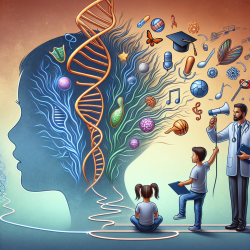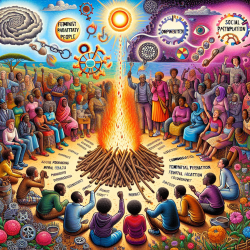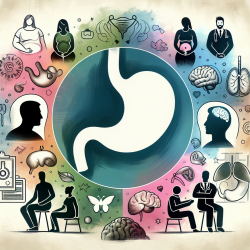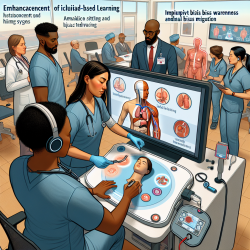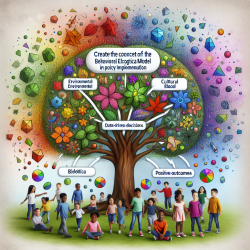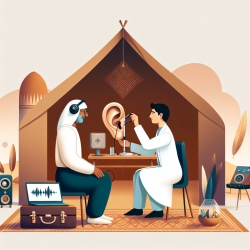Introduction
In the realm of neurodevelopmental disorders (NDDs), the role of genetic mutations is increasingly recognized as pivotal. A recent study titled "Rare deleterious mutations of HNRNP genes result in shared neurodevelopmental disorders" delves into the impact of mutations in heterogeneous nuclear ribonucleoproteins (HNRNPs) on neurodevelopment. This blog explores the findings of this study and discusses how practitioners can leverage this knowledge to enhance therapeutic outcomes for children.
Key Findings of the Study
The study identified 12 HNRNP genes as candidates for NDDs, with specific mutations linked to significant neurodevelopmental challenges. Notably, the research highlighted the enrichment of de novo variants in these genes among individuals with NDDs, suggesting a shared molecular pathogenesis. The expression of these genes was found to be crucial during cerebral cortical development, particularly among radial glial progenitors, which are essential for brain development.
Implications for Practitioners
Understanding the genetic underpinnings of NDDs can significantly influence therapeutic approaches. Here are some ways practitioners can apply these findings:
- Personalized Therapy: By identifying specific HNRNP mutations in children, practitioners can tailor interventions that address the unique challenges associated with these genetic variations.
- Early Diagnosis: Genetic screening for HNRNP mutations can facilitate early diagnosis, allowing for timely intervention and potentially mitigating the severity of NDD symptoms.
- Collaborative Research: Practitioners are encouraged to collaborate with geneticists and researchers to further explore the implications of HNRNP mutations, contributing to a broader understanding and improved therapeutic strategies.
Encouraging Further Research
The study underscores the need for continued research into the genetic factors contributing to NDDs. Practitioners can play a vital role in this endeavor by:
- Participating in Research Studies: Engaging in research initiatives that investigate the genetic basis of NDDs can provide valuable insights and contribute to the development of targeted therapies.
- Sharing Clinical Observations: Documenting and sharing clinical observations related to HNRNP mutations can enhance the collective understanding of these disorders and inform future research directions.
Conclusion
The exploration of HNRNP genes in the context of neurodevelopmental disorders offers promising avenues for improving child outcomes. By integrating genetic insights into therapeutic practices, practitioners can enhance the precision and effectiveness of interventions. As the field of genetic research continues to evolve, ongoing collaboration and research will be crucial in unlocking new possibilities for children with NDDs.
To read the original research paper, please follow this link: Rare deleterious mutations of HNRNP genes result in shared neurodevelopmental disorders.
